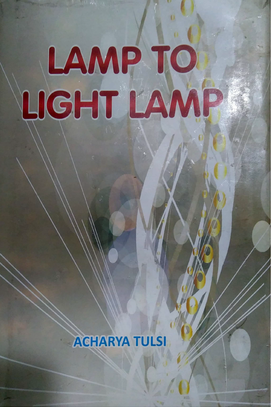Man aspires to make progress. He always discovers new things for progress. He is going on climbing new peaks of progress on the basis of the discoveries in the field of science. His unrestricted speed in travelling on land, water and in the sky is one measure of his progress. At one stage in his progress, he is able to get full information about any event taking place anywhere in the world instantaneously. He is able to hear the audible part of that event and see the visible part. In the same process, he can also send a written message hundreds and thousands kilometres away in the matter of a moment. With the help of nuclear and electrical power, man is doing such things today which his ancestors had never imagined.
In the context of man's concept of progress he can do only those things about which the brief information has been given. It would not be to myliking to underestimate this form of progress. But I would like to warn that the ultimate peak of progress cannot be reached by following this path. Considering the path the scientists of the world are following, they would not be able to climb that peak even after the hard and persistent efforts over thousands of years. Leave aside reaching that peak they would not be able to get anywhere near it, nor even see it. In this situation, it is most essential to discover a path from which the ultimate peak of progress could be seen.
Trustworthy people have regarded moksha as a halting place after which all roads are obliterated. Since there is no further goal to reach, how would there be any roads? All the systems of philosophy that accept the existence of the Soul, accept the reality of moksha. There is only one way to find moksha, and it is the coordination of knowledge, penance and self-restraint. Knowledge by itself gives rise to egotism. Penance by itself takes one down into the dark cavern of hardships. And self-restraint by itself suppresses feelings. The paths of egotism, hardship and suppression lead one downward. For rising high; adjustment of all the three is necessary.
The function of knowledge is to bring light. When there is light, we know where we should go and where we should not go. We know where there are useful things and where there is rubbish. We know where things are well organised and where there is chaos. In darkness we cannot know fully about anything. That is why light is needed.
The function of penance is to purify. A pile ofrubbish is cleaned by burning. The Soul is soiled by the pile of rubbish. To purify it, the flame of penance would have to be lighted. The Soul would not be purified as long as the flame of inner and outer penance is not lighted.
All the inlets of rubbish would have to be blocked so that the soul, cleaned through penance does not become impure again. This is to be done through self-restraint, through conduct. Self-restraint brings control. Where there is self-restraint, no undesirable or anti-social element can creep in. This whole discussion can be summed up in the following four lines:
Knowledge is enlightener
Penance purifier and promotes self-guarding.
All the three together in proper perspective
Means emancipation in the Jain Precepts. [1]
 Acharya Tulsi
Acharya Tulsi
